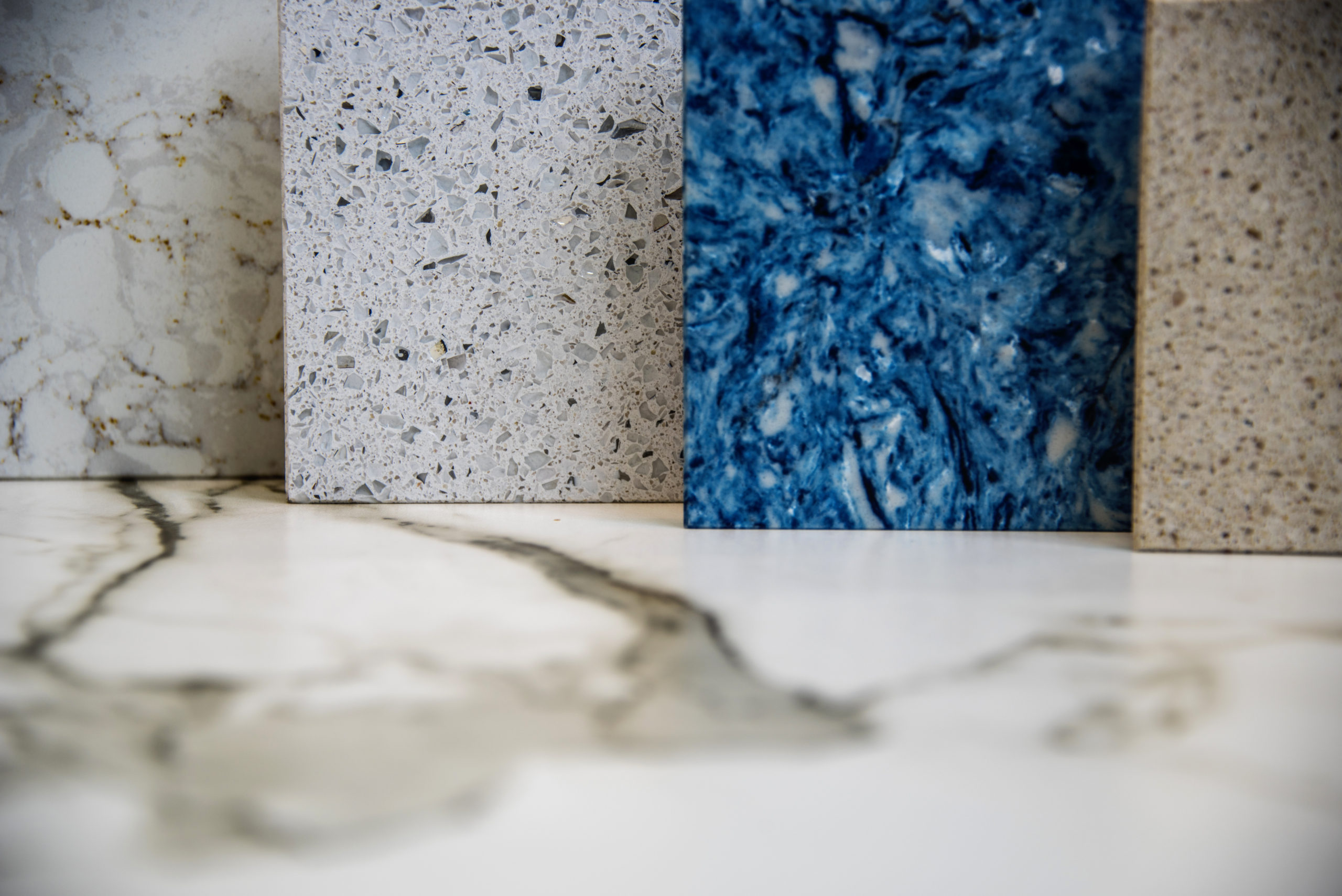Serving as both kitchen workhorse and showpiece, today’s countertops play a demanding role. As the primary site of all food preparation, they’re expected to be durable (stain-proof, scratch-proof, and heat-proof), beautiful, and yet still economical. It’s no wonder that choosing a countertop material is such a daunting decision!
But it need not be so tricky. Instead of getting seduced or intimidated by the endless options on the marketplace, begin by asking yourself the right questions and setting your priorities straight. Here is a list of crucial questions you should ask yourself before you commit.
1. How will you use your countertop?
The most critical part of your countertop decision should come from an assessment of how you and your family use your kitchen. For example, I have two teenagers and our countertops see a lot of daily active duty. Not only do we do a fair bit of family cooking but also my kids are always in the kitchen making “in-between” meals. And so it was important to us that our choice be able to withstand a variety of cooking and clean-up styles – without my having to be extra vigilant. I was less concerned about scratches and more concerned that my countertops be impervious to most food stains.
2. How much maintenance can you handle?
Many materials come with a long list of upkeep demands, while others are extremely resilient. Be realistic about how much effort you’re willing to put into the care of your countertops. For example, porous materials like marble, limestone, and granite need sealing at least once a year. Alternatively, solid surfaces, while they may come with a higher price, will not need the same level of maintenance.
Bottom line: before falling in love with a material, fully assess the demands of living with it.
3. What are your kitchen requirements?
It is extremely helpful to have an idea of how many linear feet of countertop you will need, as well as any required dimensions for your space that aren’t standard. This way, as you gather information, you can create your own ballpark figures for each material and make comparisons.
In reality, design and budgetary reasons might dictate the use of two different materials: For instance, if you have an island, it might be where you use an affordable wood top while the adjacent counters are in budget-devouring marble or granite.
4. What’s your budget?
Ranging from $90 per square foot for a basic plastic laminate to $300 per square foot for top-grade marble or quartz, the cost of a kitchen countertop varies widely and also depends on your local supplier and builder. Yet these basic guidelines can be misleading: High-end butcher’s block, for example, can cost significantly more than low-grade granite.
A good kitchen countertop, if maintained properly, will last indefinitely. With that in mind, it’s smarter to target your ideal material first and then try to find a version of it that fits your budget. It’s often easy to rationalize going over budget when you realize you will be living with that decision for many years to come.
5. What materials speak to you?
For those who are design-obsessed, aesthetics can’t be ignored. It would, however, be a shame to select a countertop based on beauty alone, only to realize after it’s installed that it’s not the right match for you. Working out why you are drawn to certain materials over others will help you make your final choice with confidence. For example, you might be attracted to white Carrara marble countertops but don’t want the hassle of worrying about red wine stains. An alternative white stone material such as Quartzite, which is durable, low-maintenance, and lower in cost. Or, if you decide it’s the warmth and personality of Carrara marble that you want, you’ll be prepared to put up with its shortcomings.
Bottom Line: treat your counter decision like any big investment. Take the time to look around, whittle down your options, count your pennies, and then make the leap. We will help you work through your options and can advise on what materials may be the best fit for your needs.

